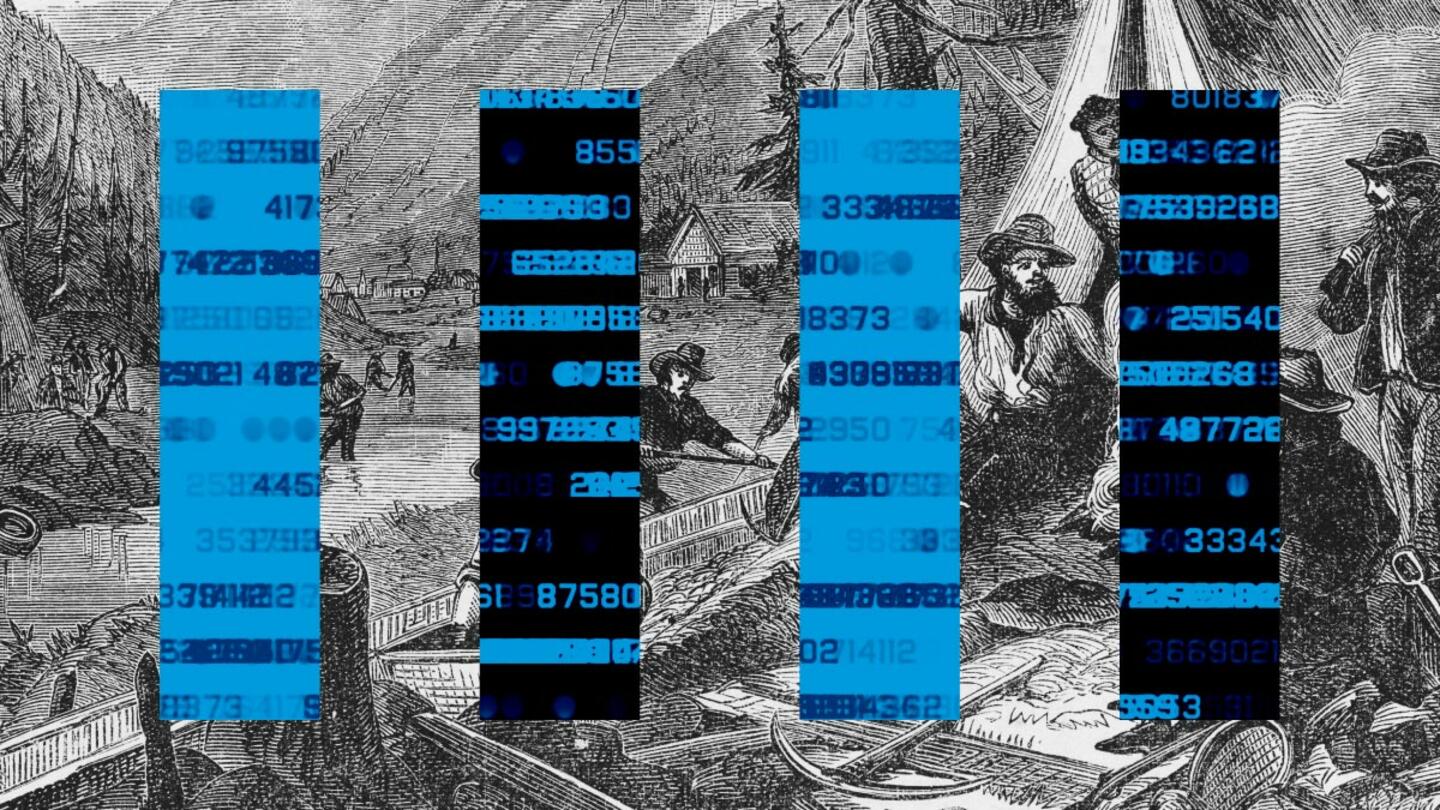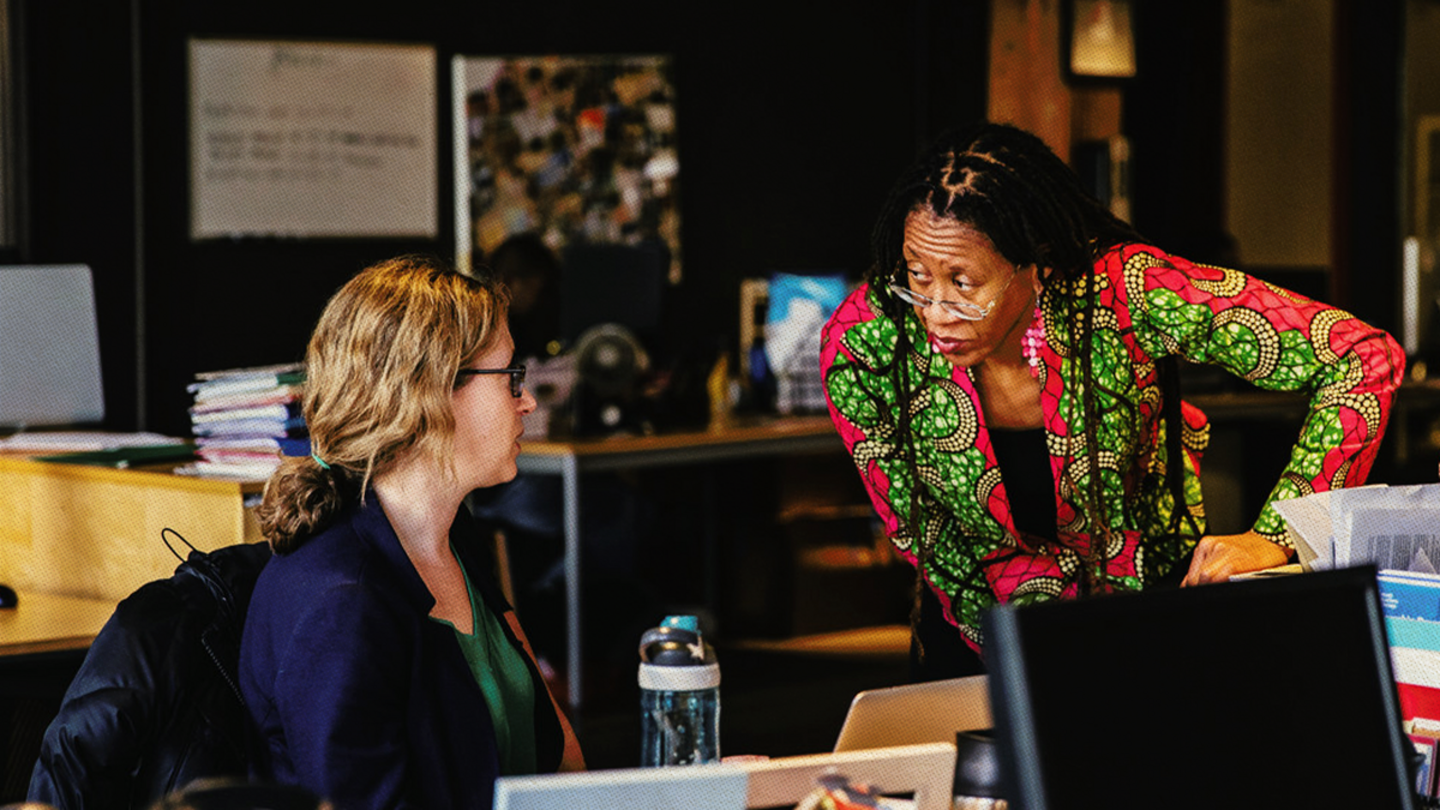For dissatisfied workers, “quiet quitting” was all the rage in the years post-COVID.
On social media and job boards, people shared how they disengaged from work without voicing it while others debated workplace boundaries.
That trend may have passed, but more recent workplace frustration has grown darker. It’s called resenteeism. Unlike quiet quitting, where employees do the minimum required, resenteeism involves employees showing up but feeling resentful and disillusioned — sometimes only coasting in their jobs.
According to a Leadership IQ Survey, 60% of employees are so frustrated with their jobs that they’re exploring other options. SHRM’s 2024 research shows 51% of U.S. employees feel used up by day’s end.
This all impacts the bottom line. Gallup found that teams with engaged employees saw 23% higher profits than those with disengaged employees.
How much longer can the economy stay strong with so many employees feeling dissatisfied and frustrated at work?
This October, a diverse mix of employers, innovators, investors, and educators will come together in Denver to kickstart a movement focused on building workplaces where workers feel fulfilled because they are contributing meaningfully to businesses that thrive because of it.
The conference will tackle questions like this one: How can employers support the 74% of workers who feel they aren’t reaching their full potential due to lack of job and career development opportunities?
“Far too often, important conversations about employer practices and educational pathways — and even the skills that learners and workers want and need — happen in a vacuum,” said Taylor McLemore, founder of the Human Potential Summit.
“Talent innovation must be human-centric. It needs to focus on the worker and learner at the center. But if it’s not employer relevant, it will never truly scale in the market.”
The conference will feature a range of innovators with exciting new ideas on how business can connect the right people with the right roles that will help people engage and businesses thrive.
Here’s a glimpse of what to expect:
The three words keeping so many from their desired career
“Bachelor’s degree required.” Those three words are the beginning and the end of the job search for so many Americans. Degree requirements eliminate millions of resumes before applicants even get in the door.
CEO Byron Auguste aims to change that.
Auguste is the co-founder of Opportunity@Work, a nonprofit leading the charge to remove unnecessary degree requirements that limit access to job opportunities. The organization coined the term, “STARs,” referring to workers who have become skilled through alternative routes — aka they don’t have degrees.
Tear the Paper Ceiling” is an Opportunity@Work initiative that challenges the widespread practice of requiring bachelor’s degrees for positions that don’t need them.
The campaign seeks to shake up the job market by helping more people find work that aligns with their skills and strengths rather than their degrees. It promotes skills-based hiring practices, helping companies see the potential in STAR candidates — workers who possess valuable, relevant skills and experiences acquired through military service, community college, or on-the-job training.
This approach not only helps fill critical job openings but also ensures that skilled workers are not overlooked due to arbitrary degree requirements.
In its inaugural year, Tear the Paper Ceiling has assembled a coalition of 65 employers who’ve created nearly 30,000 additional jobs that don’t require degrees.
According to Auguste, this is just the beginning.
“In the next decade, Opportunity@Work and our partners will enable a million STARs to gain better jobs through the networks and the tools that we’ve set up,” he said. “Those STARs will be earning $20 billion more a year than they otherwise would.”
Sign up for Stand Together's Rethinking Work & Learning newsletter to get the latest stories, ideas, and trends on the future of employment.
Making colleges more like GPS for your career
The cost of degrees is skyrocketing, yet many college graduates struggle to find jobs.
How is this possible? Naomi Boyer says it’s because the university education system can’t keep up with rapidly changing job market needs.
Boyer is senior vice president of digital transformation at Education Design Lab, an organization at the forefront of addressing the disconnect between traditional education and the evolving job market. EDL creates innovative, practical learning options, such as microcredentials and “micropathways,” that certify specific skills through targeted programs.
It’s like GPS for your career. The approach shifts education from a rigid, one-size-fits-all model to one that is adaptable and responsive to modern job requirements.
By developing and implementing these microcredentials and micropathways, EDL bridges the gap between academic learning and job readiness. This ensures that students gain relevant, employable skills and that employers can find candidates with the precise abilities they need.
Boyer’s work aims to make education more affordable, relevant, visible, and portable, thus improving employment opportunities and aligning educational outcomes with market demands.
Since 2013, EDL has launched micropathways in over 50 community college systems and engaged more than 2,000 education-to-workforce practitioners in co-designing solutions.
Does the quest for human potential extend to everyone, even if they have a troubled past?
Some of the most capable individuals in society find their potential hemmed in by past mistakes and the stigma that follows them.
Antong Lucky, CEO of Urban Specialists, has committed his life to helping individuals escape the violent environments they grew up in. A former gang leader, Lucky learned that his leadership skills could be redirected from criminal activities to positive change, ultimately becoming a champion of redemptive activism.
Urban Specialists helps at-risk youth navigate away from gang life toward constructive futures. Initiatives like the Bishop Omar School of Entrepreneurship and OGU (OG is slang for “original gangster”) empower young people to harness their potential to contribute in their communities — rather than using that same potential to harm others.
“It’s all about the work,” he said. “We all have something to contribute. Every single one of us.”
The USC3 network (short for Urban Specialists Collaborative Community Changemakers) brings together businesses, social organizations, and law enforcement to find ways to provide resources in communities that need them.
Lucky’s redemptive activism model is grounded in the belief that all people, especially those with troubled pasts, hold immense potential for growth and healing.
Where school meets real life
When did we separate academics and practical experience?
The traditional higher-education model often forces a choice between working and studying and insists that career preparation begins after high school. AdvanceEDU, an education innovator based in Denver, Colorado, is changing the game by merging education with real-world experience — beginning with high school juniors and seniors and staying with them through college completion.
“Every student is capable of being a professional and a leader in their community,” said Lauren Trent, the CEO of AdvanceEDU.
This dual approach not only equips students with valuable industry skills but also ensures they are prepared for the demands of the modern workforce.
Imagine learning coding through online tutorials while also developing a live app that addresses a real-world problem. Or picture studying business strategies while actively contributing to a company’s sales and marketing efforts. This blend of academic and practical experience fosters a deeper understanding of the subject matter and enhances students’ readiness for future careers.
Real life isn’t just about work experience. Throughout their career-readiness journey, students have access to support like a personal success coach, child care, technology, and career exploration resources.
In the four years since its inception, the organization has expanded to serve learners all over Colorado and the United States.
Imagine a future where education is a life-long process, not a one-time event
Why is traditional higher education so rigid? Who decided all our adult learning should be packed into four years and then we’re done?
Parminder Jassal, founder and CEO of Unmudl, is reimagining higher education as a path for individuals to realize their potential through flexible, skills-based learning tied to specific job roles.
Her Unmudl marketplace connects learners directly with in-demand jobs by teaming up with employers and community colleges. Instead of working in silos, employers and colleges co-create courses that match the employers’ specific job needs, offering a fast track for learners to gain the right skills and land high-demand jobs.
Jassal’s vision is centered on the belief that education should be a continuous, evolving process that adapts to both the individual and the market. She sees learning not as a one-time event but as an ongoing journey that develops alongside a person’s ambitions and interests.
***
The Stand Together community partners with changemakers who are tackling the root causes of America’s biggest problems.
Learn more about Stand Together’s efforts to transform the future of work and explore ways you can partner with us.

Why AI may help more people achieve the American Dream.

Data centers are at the forefront of the ‘new economy.’ But what exactly are they?

Here’s how to bridge the disconnect between employers and employees.

Lessons learned from Colorado.
